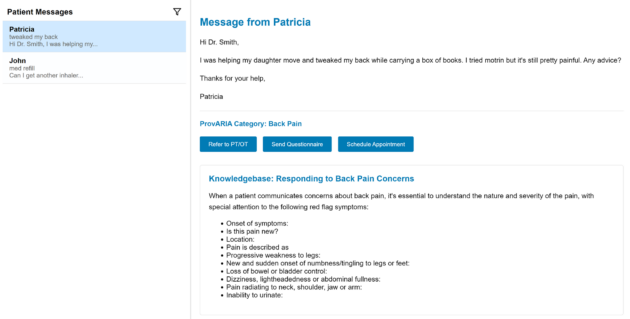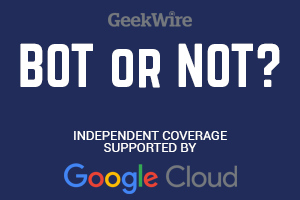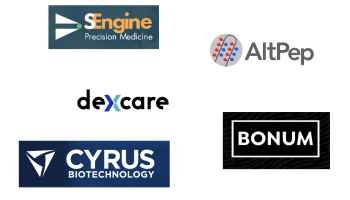
The ability to call your doctor’s office and speak to a live human appears to be a thing of the past as patients turn to digital communications. Yet options there are often limited: leave a message that’s flagged for your provider for a later response, or call 911 for emergencies.
But what about gray areas where you need help soon, but don’t require an aid car and flashing lights?
Providence, a multi-state healthcare network based in Renton, Wash., has developed a generative AI tool to prioritize incoming messages and support the medical assistants who lead the responses.
Provaria reviews messages from patients to ensure those with more urgent needs, such as a mental health crisis, get immediate attention, instead of the previous approach that answered messages in the order they were received.
Provaria also provides resources for the medical assistants to help them craft a reply. If a patient’s message cites back pain, for example, the system would suggest a referral to a physical therapist, include a link to that department, and prompt the assistant to ask about red flags that indicate a more urgent situation.
“There’s always a human in the loop,” said Dr. Ford Parsons, Providence chief operations analytics and lead on the project. “It’s not AI-generated replies to patients.”

After slowly rolling out the technology, Providence recently deployed Provaria to manage the messages for all 4,000 of its primary care, family medicine and internal medicine providers. The system has reviewed and categorized more than 500,000 messages so far.
The objective for Provaria is to provide better care for patients, and cut the amount of time spent on administrative tasks for providers and medical assistants, Parsons said, and early research suggest it’s helping with those goals.
A subset of employees managing messages in Southwest Washington reported a 50% reduction in median turnaround time when they started using Provaria, cutting responses from four days down to two.

It took Parsons’ team less than three weeks to develop the resource. It was 18 days between Microsoft’s rollout of the Azure OpenAI Service in 2023 and the launch of a proof-of-concept tool in the Providence system. The solution went through careful testing and evaluation within the Providence network before it was adopted system-wide, Parsons said.
“You can’t just have a couple of engineers saying this is safe,” he added. The tech tools are reviewed by experts including clinicians, an ethicist, and people from spiritual care, given that Providence is a nonprofit Catholic organization.
Provaria is available to primary care providers in the seven states where Providence serves patients: Washington, Oregon, California, Alaska, Montana, New Mexico and Texas. The healthcare network is not planning to commercialize the tool.
There are plans to extend the service to pediatricians and to keep building more resources in the suggested responses sent to the medical assistants. The AI tools will make the categorization tool easy to modify when a new ailment emerges or other updates are needed, he said.
“We’re trying at Providence to make use of AI in a responsible way,” Parsons said, “to empower our caregivers to do the things they’re best qualified to do.”





